Whether humans can be in control of Society 5.0 based on technologies such as artificial intelligence and robotics or the other way around cannot be fully understood without social sciences such as politics and economics. This session sheds light on the international dimension of how humans deal with technology. More specifically, with its main focus on how nations compete for technological hegemony and implications for individual freedom and international order, this session will highlight Sino-American virtual and trade war for 5G, China’s technological diplomacy with Latin America, historical lessons from the US-Japan trade war in the 1980s, the role of social media in disputed regions such as Kashmir between China, India, and Pakistan, and the prospects of a new world economic order as well as a post-Western international order.
Speakers
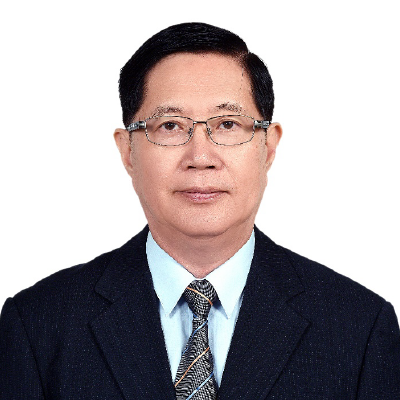
- Prof. Chung-Chian Teng
- Distinguished Professor of Diplomacy and Director of International Master’s Program in International Studies
National Chengchi University (NCCU) - Prof. Chung-chian Teng received his M. A. and Ph.D. in Political Science at Northwestern University in 1981 and 1985 respectively. Currently, he is Distinguished Professor of Diplomacy and Director of International Master’s Program in International Studies, National Chengchi University (NCCU). A member of the Editorial Board of three well-known academic journals (Chinese Political Science Review, Chang Gung Journal of Humanities and Social Sciences, and Global Political Review), he served as Dean of the College of International Affairs, NCCU (2009-2013), Chair of the Department of Diplomacy (1999-2003) , NCCU, and Secretary General of the Chinese Political Science Association (2001-2003). He specializes in international political economy, foreign policy, Cross-strait relations, and Latin American studies. His most recent major publications are: “America’s Perspective and Policy Behavior toward China in South China Sea: A Dialogue between International Politics and International Law,” (in Chinese) Review of Global Politics, No. 61 (January 2018)31-54; “The Pattern of China’s Financial Initiative in Latin America and the Caribbean: A Comparative Study,” Issues &Studies, Vol. 53, No. 4 (March, 2017); “China’s Strategies and Practices for Expanding Her Political and Economic Influences in Latin America,” (in Chinese) Prospect & Exploration, Vol. 13, No. 2 (February 2016).
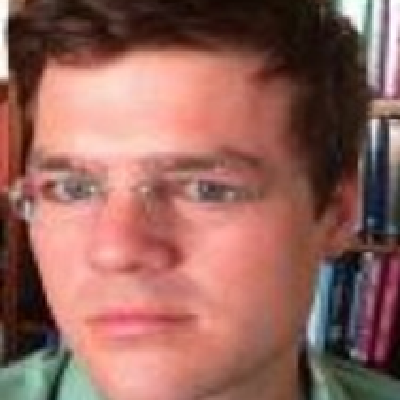
- Mr. Nicholas Frisch
- Resident Fellow, Yale Law School
- Nick is a doctoral candidate in Yale’s East Asian program. He has reported from Asia for the New York Times, Wall Street Journal, New Yorker, Columbia Journalism Review, and Foreign Affairs. Nick was a Fulbright fellow in Beijing, a Blakemore fellow in Taipei, a visiting fellow at Hong Kong University's Journalism and Media Studies Centre, and a research fellow at Columbia Journalism School.
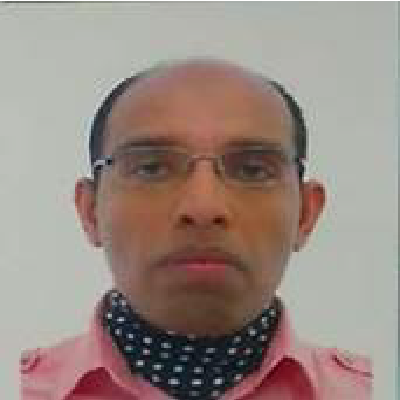
- Mr. Rohit Jawahar
- Doctoral Student
National Chengchi University - Mr. Jawahar is an expert on Strategic and South-East Asia Affairs, with a 360-degree view on National Security, Intelligence Studies, Naval Affairs, Counter-Terrorism etc. Primary focus is on Area Studies pertaining to the People’s Liberation Army (PLA), China Security, etc. of the People’s Republic of China. A polyglot with a penchant for linguistics and field work, he was a Research Fellow and Assistant at the Department of Defence and Strategic Studies (DDSS), University of Madras.
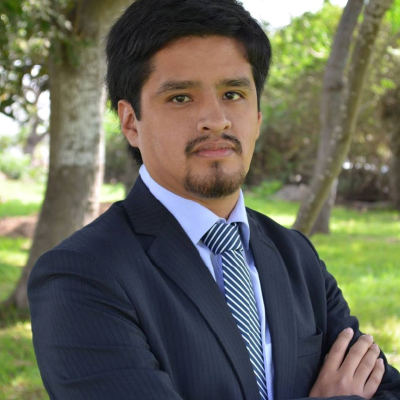
- Prof. Juan Diego Zamudio Padilla
- Head of International Technical Cooperation Office / Professor of Economics, National University of San Marcos (UNMSM)
- Currently a Visiting Scholar at Fudan University as a Research Economics Professor, he is a member of various organizations, such as UNMSM’s Network of Studies of Asia and the Pacific (REDAP); Global 1st Penguin Club (G1PEC) Networking platform focused on innovation and entrepreneurship as well as international cooperation of Hiroshima University; founder and member of Asia Studies Center (CEAS) at UNMSM; and founder and CEO at KAY GROUP, a global management consulting firm. He has more than 10 years of experience in senior management positions. He is a Master's student in Finance, and an Economist specializing in Finance at UNMSM. A database programmer from UNI as well as a specialist in international cooperation and contracts from the Diplomatic Academy of Peru, his academic and research interests range from Corporate Finance, Venture Capital, Industrial Economy, International Cooperation, Internationalization of Higher Education, Multinational Companies and Economy to Alternative Finance, artificial intelligence, behavioral economics, and data science.

- Prof. Carolina Moehlecke
- Adjunct Professor, School of International Relations
Getulio Vargas Foundation (FGV RI) - She is currently an Adjunct Professor at the School of International Relations at the Getulio Vargas Foundation. She earned her B.A. in International Relations from Centro Universitário La Salle (2014) and her M.A. in Political Science from the University of Texas at Austin (2017). She is currently a PhD candidate in the Department of Government at UT Austin, with an expected date of graduation for the first semester of 2020. Her PhD fields of specialization are International Relations and Methodology. Her research focuses on topics of International Political Economy and International Institutions. Specifically, she looks at how corporations use international law to affect domestic regulation in countries where they invest in and trade with, with a focus on the regulatory regimes of environmental protection and public health.
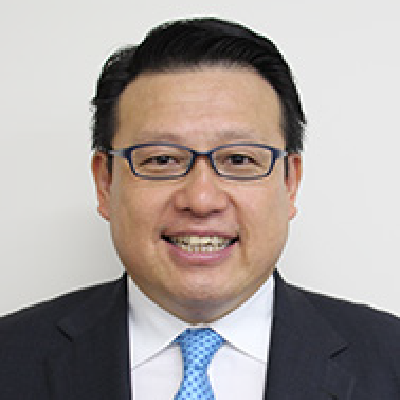
- Joji Kijima, Ph.D.
- Specially Appointed Professor, University of Tsukuba, Japan
- Joji Kijima is attached to the Office of Global Initiatives. In terms of university management, he has contributed to the areas of international partnerships, educational and research collaborations, and overseas operations in Latin America, Asia, North Africa, Europe, and North America. He has previously served elected officials in Japan and the United States including a former president of the United States. He has also conducted graduate work at the School of International Law and Diplomacy at National Chengchi University (NCCU) in Taiwan. Academically, he teaches courses on Japan and East Asian communities, East Asian international relations and coexistence, and global governance (politics and discourse analysis). He has contributed chapters on “Perspectives” and “Advocacy Groups in International Perspective: Comparing with 7 Countries” to Yutaka Tsujinaka et al. (2014) Civil Society and Interest Groups in Contemporary China: China in Comparative Perspective, Tokyo: Bokutakusha (in Japanese and Mandarin). He obtained his Ph.D. at the University of London (SOAS) with his thesis entitled “Republic of China-Japan Relations: A Genealogy of “Returning Virtue for Malice” while his B.A. is from the University of Southern California.
Keywords
Sino-American Trade War, 5G, Post-Western World Order, Historical Lessons
人間がAIやロボット工学といったソサエティ5.0を支える技術に支配されることになるのか、又は逆にそれらの技術を支配することになるのかといった問題は、政治学や経済学といった社会科学を抜きに充分に理解することはできない。本セッションでは、人間が技術とどう向き合うかについての国際的側面に光を当てる。より具体的には、国家間の技術の主導権争いがどのように個人の自由そして国際秩序へ影響を及ぼすかをメインテーマに、米中の5Gを巡るバーチャル・貿易戦争、中国が中南米で展開する技術外交、1980年代の日米貿易戦争からの教訓、中国・インド・パキスタンの間の紛争地域(カシミール地方)におけるソーシャルメディアの役割、そして新しい世界経済秩序とポスト西洋の国際秩序を展望する。
Speakers

- Prof. Chung-Chian Teng
- Distinguished Professor of Diplomacy and Director of International Master’s Program in International Studies
National Chengchi University (NCCU) - Prof. Chung-chian Teng received his M. A. and Ph.D. in Political Science at Northwestern University in 1981 and 1985 respectively. Currently, he is Distinguished Professor of Diplomacy and Director of International Master’s Program in International Studies, National Chengchi University (NCCU). A member of the Editorial Board of three well-known academic journals (Chinese Political Science Review, Chang Gung Journal of Humanities and Social Sciences, and Global Political Review), he served as Dean of the College of International Affairs, NCCU (2009-2013), Chair of the Department of Diplomacy (1999-2003) , NCCU, and Secretary General of the Chinese Political Science Association (2001-2003). He specializes in international political economy, foreign policy, Cross-strait relations, and Latin American studies. His most recent major publications are: “America’s Perspective and Policy Behavior toward China in South China Sea: A Dialogue between International Politics and International Law,” (in Chinese) Review of Global Politics, No. 61 (January 2018)31-54; “The Pattern of China’s Financial Initiative in Latin America and the Caribbean: A Comparative Study,” Issues &Studies, Vol. 53, No. 4 (March, 2017); “China’s Strategies and Practices for Expanding Her Political and Economic Influences in Latin America,” (in Chinese) Prospect & Exploration, Vol. 13, No. 2 (February 2016).

- Mr. Nicholas Frisch
- Resident Fellow, Yale Law School
- Nick is a doctoral candidate in Yale’s East Asian program. He has reported from Asia for the New York Times, Wall Street Journal, New Yorker, Columbia Journalism Review, and Foreign Affairs. Nick was a Fulbright fellow in Beijing, a Blakemore fellow in Taipei, a visiting fellow at Hong Kong University's Journalism and Media Studies Centre, and a research fellow at Columbia Journalism School.

- Mr. Rohit Jawahar
- Doctoral Student
National Chengchi University - Mr. Jawahar is an expert on Strategic and South-East Asia Affairs, with a 360-degree view on National Security, Intelligence Studies, Naval Affairs, Counter-Terrorism etc. Primary focus is on Area Studies pertaining to the People’s Liberation Army (PLA), China Security, etc. of the People’s Republic of China. A polyglot with a penchant for linguistics and field work, he was a Research Fellow and Assistant at the Department of Defence and Strategic Studies (DDSS), University of Madras.

- Prof. Juan Diego Zamudio Padilla
- Head of International Technical Cooperation Office / Professor of Economics, National University of San Marcos (UNMSM)
- Currently a Visiting Scholar at Fudan University as a Research Economics Professor, he is a member of various organizations, such as UNMSM’s Network of Studies of Asia and the Pacific (REDAP); Global 1st Penguin Club (G1PEC) Networking platform focused on innovation and entrepreneurship as well as international cooperation of Hiroshima University; founder and member of Asia Studies Center (CEAS) at UNMSM; and founder and CEO at KAY GROUP, a global management consulting firm. He has more than 10 years of experience in senior management positions. He is a Master's student in Finance, and an Economist specializing in Finance at UNMSM. A database programmer from UNI as well as a specialist in international cooperation and contracts from the Diplomatic Academy of Peru, his academic and research interests range from Corporate Finance, Venture Capital, Industrial Economy, International Cooperation, Internationalization of Higher Education, Multinational Companies and Economy to Alternative Finance, artificial intelligence, behavioral economics, and data science.

- Prof. Carolina Moehlecke
- Adjunct Professor, School of International Relations
Getulio Vargas Foundation (FGV RI) - She is currently an Adjunct Professor at the School of International Relations at the Getulio Vargas Foundation. She earned her B.A. in International Relations from Centro Universitário La Salle (2014) and her M.A. in Political Science from the University of Texas at Austin (2017). She is currently a PhD candidate in the Department of Government at UT Austin, with an expected date of graduation for the first semester of 2020. Her PhD fields of specialization are International Relations and Methodology. Her research focuses on topics of International Political Economy and International Institutions. Specifically, she looks at how corporations use international law to affect domestic regulation in countries where they invest in and trade with, with a focus on the regulatory regimes of environmental protection and public health.

- Joji Kijima, Ph.D.
- Specially Appointed Professor, University of Tsukuba, Japan
- Joji Kijima is attached to the Office of Global Initiatives. In terms of university management, he has contributed to the areas of international partnerships, educational and research collaborations, and overseas operations in Latin America, Asia, North Africa, Europe, and North America. He has previously served elected officials in Japan and the United States including a former president of the United States. He has also conducted graduate work at the School of International Law and Diplomacy at National Chengchi University (NCCU) in Taiwan. Academically, he teaches courses on Japan and East Asian communities, East Asian international relations and coexistence, and global governance (politics and discourse analysis). He has contributed chapters on “Perspectives” and “Advocacy Groups in International Perspective: Comparing with 7 Countries” to Yutaka Tsujinaka et al. (2014) Civil Society and Interest Groups in Contemporary China: China in Comparative Perspective, Tokyo: Bokutakusha (in Japanese and Mandarin). He obtained his Ph.D. at the University of London (SOAS) with his thesis entitled “Republic of China-Japan Relations: A Genealogy of “Returning Virtue for Malice” while his B.A. is from the University of Southern California.
Keywords
Sino-American Trade War, 5G, Post-Western World Order, Historical Lessons